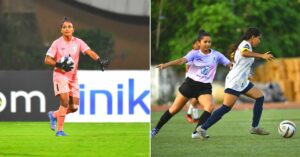‘Mini Brazil of India’ Was Once Infamous for Illegal Liquor: How One Man Transformed a Village
Once known for illegal liquor, Bicharpur village in Madhya Pradesh is now a football hub, producing around 45 national players. Learn how coach Raees Ahmed's efforts kickstarted this transformation.
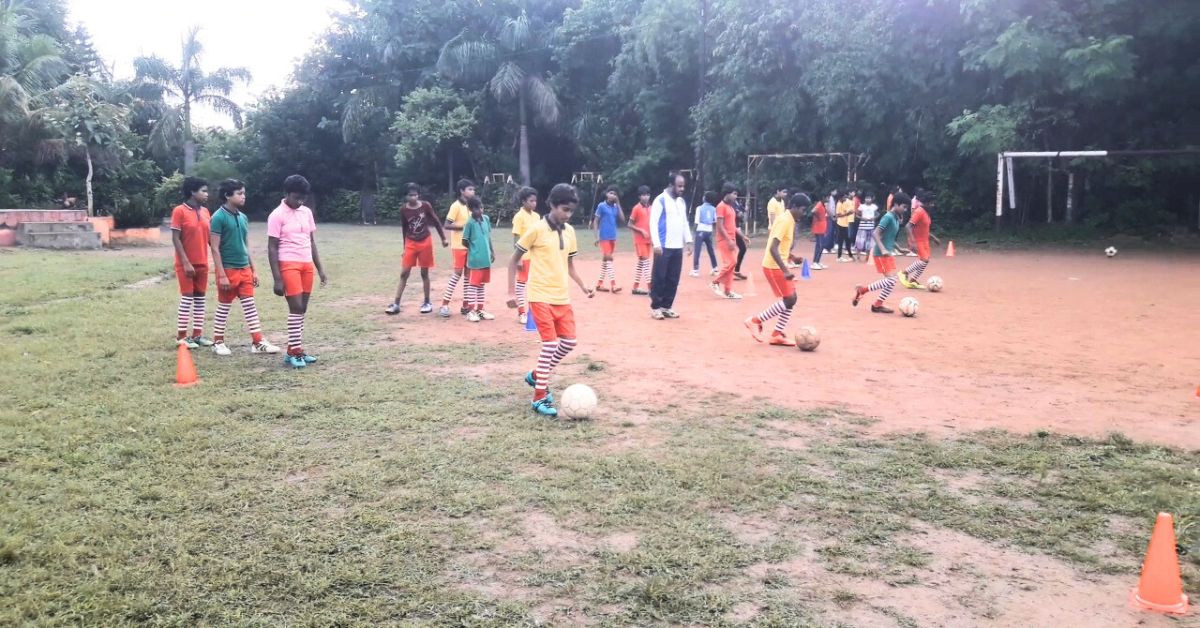
Almost a decade ago, Bicharpur — a village in the tribal-dominated Shahdol district of Madhya Pradesh — was notorious for its rampant production of illicit liquor and narcotics. The primary source of income for many families was the production of liquor from the locally available mahua fruit.
“In this village, every house has been making kachhi shat (mahua liquor) for generations. They did not consider it wrong or illegal since it was deeply ingrained in their culture for a long time. Even children, regardless of their ages, were involved in this work. In fact, the villagers, including children, consumed liquor regularly; it was like their everyday tea and the medicine for any disease,” Raees Ahmed tells The Better India.
However, today the village has undergone a remarkable transformation, emerging as a hub for the rising stars of football. It has produced around 45 state and national-level football players — including Sanya Kunde, Rajni Singh, Laxmi Sahis, Anil Singh Gond, and Hanuman Singh.
Because every household in the village has a football player, it has come to be known as the ‘Mini Brazil’ of Madhya Pradesh. The journey of Bicharpur village from its miserable state to ‘Mini Brazil’ was orchestrated by former footballer and coach Raees Ahmed.
An unlikely football hub
Raees says that the Shahdol division has been a football hub for nearly three generations. The tribal children grew up playing football but without any formal training. Raaes, who has been playing football since the age of 10, was one of them.
“We used to learn football by seeing players in tournaments. But we did not have any formal training or guidance in the sport,” says the 53-year-old who grew up following Diego Armando Maradona — a professional football player from Argentina.
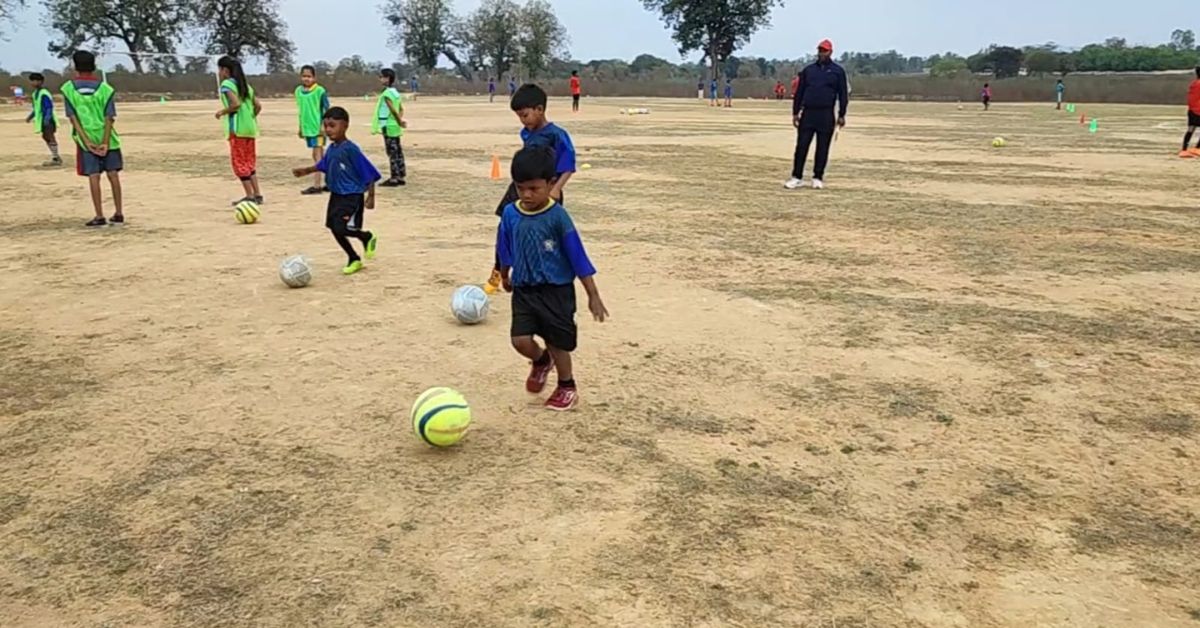
When Raees was in Class 8, he recalls, he played in the ‘under 19’ category at the national level. He went on to play football professionally at the national level seven times during his career. After graduating with a Bachelor of Arts in 1995, he secured a job as a sports teacher at a higher secondary school in Shahdol.
Then in 1997, he took formal training from the National Institute of Sports (NIS) in Kolkata. “To be a player and to be a coach are two different things. Since I was a national-level player, I thought I was an expert, but I was under the wrong impression. There [at NIS], I realised I had very limited knowledge. I realised if I had known these professional techniques, I could have played at the international level,” he says.
Coming back home, Raees went back to his old job. A couple of years later in 2001, he visited the nondescript village of Bicharpur, roughly three kilometres from his workplace.
“I saw many children in this village playing football. They had the fitness of an athlete but lacked training and techniques. They did not know how to pass the football and when to hit the ball to score a goal. After speaking to them, I realised that they did not know much about the outside world, and suddenly, I remembered my childhood!” he adds.
That day, Raees decided to be the support he desired when he was a child.
Where there’s a will…
Every evening, post his office hours, Raees would set out for the village on his bicycle. He started training children in the age group of 8–12 years. But there was no formal set up for the ground and tribal children lacked basic amenities like shoes and jerseys. “Initially, I would dedicate half of my salary to arrange basics for them,” he says.
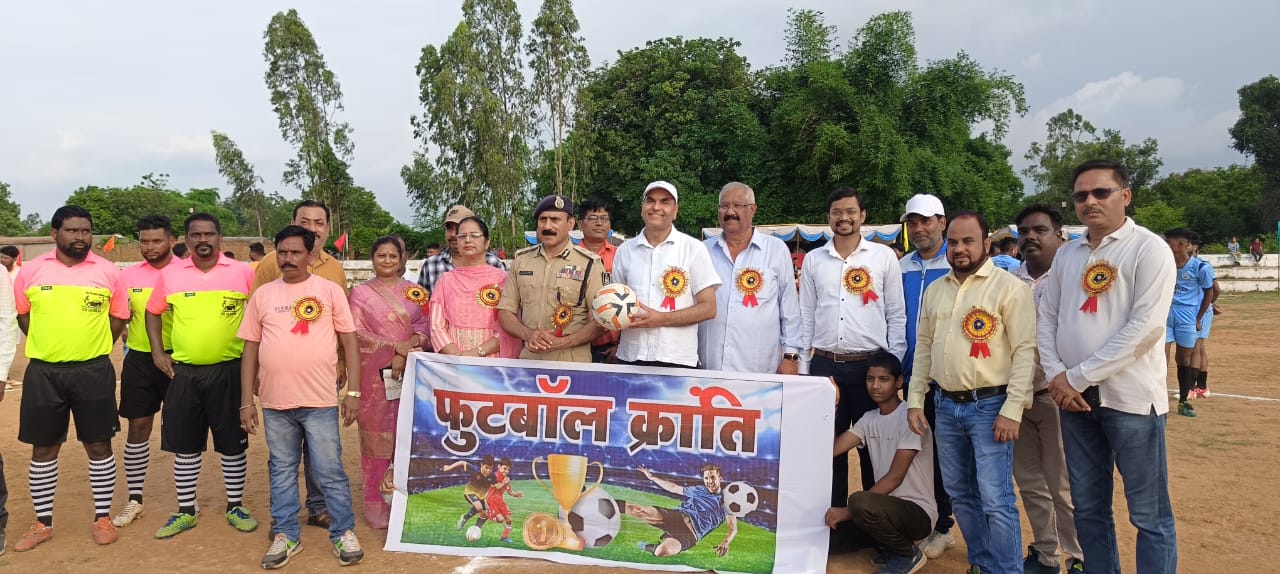
Seeing a good response from the children, the coach also encouraged them to quit the mahua work if they wanted to seriously dedicate themselves to building a career in sports. “These children helped their families quit nasha khori (alcoholism) and switch to other works like labour jobs,” he informs.
Raees adds that by 2003, these children started playing in the ‘under 14’ category at the state and national level, and by 2004, girls also started participating in the sport. So far, the coach has trained at least 1,500 children, and of these, 45 have made it to the state and national level competitions.
One of his students, Laxmi Sahees, has been playing football since she was 12. She would tag along with her brothers to the football ground after school. She tells The Better India, “Initially, we went out of curiosity and for fun, but soon, we became so interested that we would rush to the ground for daily practice after finishing all household work.”
She continues, “Raees Sir told us about the tournaments for the women’s team. And within a year, in 2007, I participated in the national level competition and was selected in the first round. We competed with Kerala, Tamil Nadu, and UP and reached the quarter-finals.”
“Football has given me an opportunity to learn about the outside world. If I had not been into football, I guess I would have been married off at an early age and had a few kids like my elder sisters,” adds the 27-year-old who, so far, has played at nine national level competitions.
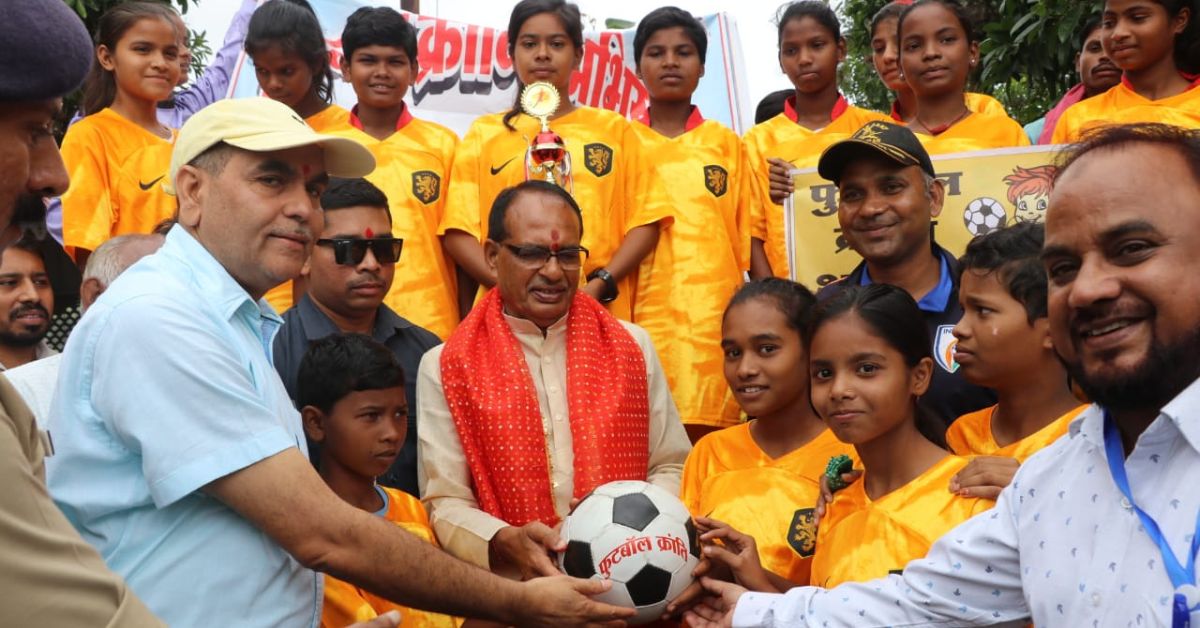
Currently, Laxmi coaches 40 students from Bicharpur and nearby villages. In the recent Khelo MP Youth Games 2023, her students bagged gold.
Laxmi’s coach sir is extremely proud of her and her students. “It is a matter of extreme pride to be able to compete and be a state champion coming from a small village,” remarks Raees.
Over the years, Raees says, Shahdol divisional commissioner Rajeev Sharma also recognised the talent in Bicharpur and established at least 1,200 clubs in all villages across the Shahdol division. “Today, 80 to 85 football tournaments are organised in the division every year. By 2022, there had been a noticeable improvement in the local people’s quality of life. They now enjoy facilities like electricity, a professional ground, and an open gym. Additionally, the government provides a dedicated budget for the sport in the area,” he adds.
Recently, Prime Minister Narendra Modi also highlighted the budding footballing talent of Bicharpur on Mann Ki Baat. “Just imagine — a tribal area, which was known for illicit liquor and was infamous for drug addiction, has now become the ‘football nursery’ of the country. That is why it is said, ‘Where there is a will, there is a way’. There is no dearth of talent in our country, but there is certainly a need to find and nurture them,” said the PM.
मध्य प्रदेश के शहडोल में फुटबॉल क्रांति नाम के एक कार्यक्रम ने यहां के युवाओं की जिंदगी बदल दी है। इसने न सिर्फ उन्हें नशे के चंगुल से बाहर निकाला है, बल्कि देश को कई प्रतिभावान खिलाड़ी भी दिए हैं। pic.twitter.com/AVSeAVcTs2— Narendra Modi (@narendramodi) July 30, 2023
Raees still coaches students in the division, and now he’s joined by national players from Bicharpur who are mentoring new talent in the Shahdol division. For him, the village’s transformative journey has been emotionally inspiring.
“Whenever I watch my students on TV, competing against other skilled players, I feel nervous throughout the match. When our students win, it is not just their victory but also a win for me as their coach. It brings happy tears to my eyes. Now, my students are also training other children, and the happiness cannot be expressed in words. Over the past few years, the entire village’s atmosphere has transformed. We hope to produce many more national players from the entire Shahdol division,” says Raees. If you found our stories insightful, informative, or even just enjoyable, we invite you to consider making a voluntary payment to support the work we do at The Better India. Your contribution helps us continue producing quality content that educates, inspires, and drives positive change. Choose one of the payment options below for your contribution- By paying for the stories you value, you directly contribute to sustaining our efforts focused on making a difference in the world. Together, let’s ensure that impactful stories continue to be told and shared, enriching lives and communities alike. Thank you for your support. Here are some frequently asked questions you might find helpful to know why you are contributing?

Edited by Pranita Bhat; All photos: Raees Ahmed.
This story made me
-
97
-
121
-
89
-
167




